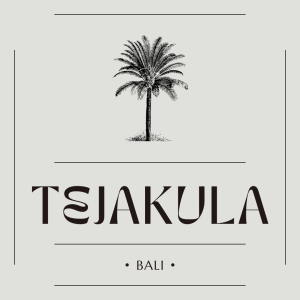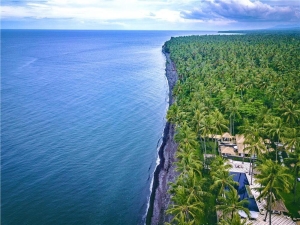In the bustling world of Bali’s tourist hotspots, Tejakula stands as a serene and unspoiled coastal gem on the island’s north-eastern shore. Tucked between majestic mountains and the gentle sea, Tejakula offers a rare glimpse into a Bali untouched by mass tourism.
This picturesque region, characterized by rocky shores and swaying palm trees, exudes old-world charm and tranquility, making it the perfect escape for those seeking a quieter and more authentic Balinese experience.
Tejakula embraces simplicity and natural beauty. Unlike the crowded and lively scenes of southern Bali, this coastal village boasts a peaceful atmosphere where the pace of life follows the gentle rhythms of the ocean. With only a handful of accommodation options, nightlife is virtually non-existent, leaving you with quiet nights under starry skies. Tejakula’s natural beauty is a sight to behold.
The few travelers who embark on the 2.5-hour drive from South Bali find themselves on the doorstep of paradise. The black sand and pebble beach, where traditional jukung fishing boats can be seen returning with the day’s catch, provide a peaceful alternative to the bustling southern beaches. Day clubs and crowds are replaced by pristine landscapes and the occasional sighting of dolphins dancing in the distance.
For those who crave a deeper connection with nature, embark on a sunrise dolphin-spotting tour. Unlike the noisy power boats found in other tourist areas, Tejakula offers a more environmentally friendly option. Local fishermen will guide you through the calm waters in traditional fishing boats, providing a unique and respectful dolphin-watching experience. While dolphin sightings can’t be guaranteed, the experience of witnessing the dawn colors and the majestic presence of Mount Agung on the horizon is truly enchanting.
Tejakula has more to offer than just natural beauty. Historic sites dot the landscape, revealing a rich cultural heritage. A short drive from the main village, you’ll find the old public baths (pemandian umum), which include compartments for both people and horses, a reminder of times long past. Behind intricately adorned walls, locals still take their daily showers in stream-fed bathing areas for both men and women.
Venture a little further to discover the Bali Aga villages, where ancient traditions have been preserved. Sembiran, a village with stunning sea views, and Julah, one of Bali’s oldest settlements, maintain their unique customs and dialect. The architecture here features round megalithic stones, adding to the sense of stepping back in time.
Tejakula also boasts its own artisans, such as Surya Indigo, a textiles workshop in Pacung. Specializing in bebali cloths, the cooperative keeps the tradition of weaving alive. These exquisite cloths are made using natural dyes derived from botanical sources like turmeric, morinda tree root, and indigo plants, creating vibrant colors of yellow, red, and blue. Watching the weavers create these precious textiles using traditional methods is a mesmerizing experience. The products here are crafted with care and dyed naturally. A visit to Surya Indigo might just leave you with a unique piece of Balinese art.
If textiles aren’t your interest, explore the Amrita Salt Farm, where seawater is transformed into Bali’s sought-after salt. This ancient technique involves evaporating seawater under the sun, creating artisanal salt grains. Although the farm is not typically open to visitors, the manager, Pak Kadek, is more than willing to share insights into the salt-making process if you stop by.
Tejakula offers an idyllic and old-fashioned experience, far removed from the hustle and bustle of South Bali. With minimal tourist infrastructure, the local community continues its traditions as it has for generations. This is a destination where you can truly escape the noise and distractions, immersing yourself in the natural beauty and cultural heritage of Bali.



